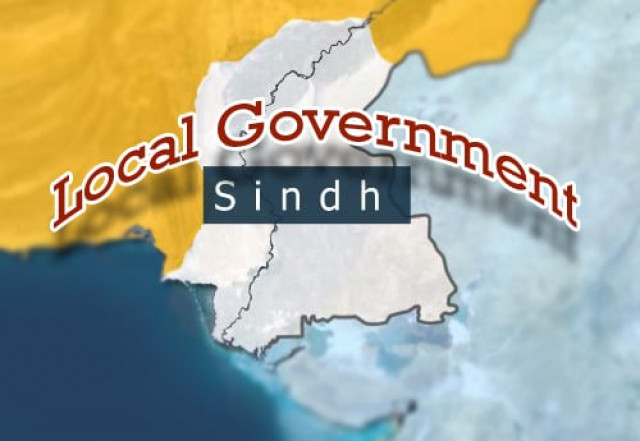Analysis: Deep repercussions of passing local govt bill in one sitting
Karachi should be viewed as a commissioner’s division.

This particular bill was important twice over as it was for the very first time that the people’s chosen representatives were to debate and decide on the pattern of local government. PHOTO: FILE
The local government law enacted by the Sindh legislature on August 19 in just one sitting bodes ill for the province’s fragile ethnic balance and peace in Karachi.
The Muttahida Qaumi Movement (MQM) has claimed there are procedural irregularities in introducing the bill and adopting it without a reference to the standing committee of the house. This is a mere technicality but the repercussions will be deeper and longer lasting.

It is hard to say how far the MQM and other parties were aware of the contents of the bill before hand. But the majority party, the Pakistan Peoples Party, acted unwisely by not referring it to the standing committee as the parliamentary tradition requires every important bill must be. This particular bill was important twice over as it was for the very first time that the people’s chosen representatives were to debate and decide on the pattern of local government.
The previous two were, so to say, gifted by military rulers, Ayub Khan and Pervez Musharraf. Secondly, importance of the MQM’s agreement to the legislation in Sindh cannot be overemphasised. It was, thus, crucial not for the success of the system alone but to create an environment of trust and goodwill at the grassroots, which hangs by a thin thread all the time.
Leaving aside the provisions of the new law and the MQM’s reservations on it, both sides should agree to subscribe to the basic principle that the municipal and administrative functions both must not vest in any one individual or institution.
In Ayub’s basic democracy officials controlled the local councils. In Musharraf’s grassroots democracy founded on the village council and revolving around district government, the councilors took over many of the administrative functions. Both systems failed to gain acceptance of parliamentarians of all varieties. The new law, by and large, reinstates the rule of separation of the administrative and legislature functions.

This discussion is intended to be restricted to the administrative and municipal arrangement as applicable to metropolitan Karachi. Any distinction made between urban and rural Karachi must necessarily be arbitrary and invidious. It is hard to say where the city ends and hinterland begins. In fact, Karachi is a conurbation with some villages and islands on the fringes.
Further, it would be nothing less than ridiculous to treat Karachi on the same footing as the neighbouring, and small, Thatta or Tharparkar with its vast deserts but sparse population. Karachi should be viewed as a commissioner’s division, as it was in one-unit West Pakistan. Its municipal chief, in parallel, should be a mayor elected by the people.
The division could be divided into districts - five seems to be the right number - with deputy commissioners as heads of administration and elected deputy mayors for civic affairs. The deputy mayors of the five districts should have the same working relationship with the mayor as deputy commissioners will have with the commissioner.
The districts could be divided into a number of wards, say 10 in each district, to elect members for the mayor’s council who would also be members of the deputy mayor’s council of their own area. The mayor advised by his council of 50 or so, thus, would be coordinating with the commissioner and the five deputy mayors, advised by their councils of 10 each, with the deputy commissioners. None would be the boss of the other.
To make coordination effective, the heads of all departments in the division should join the commissioner, deputy commissioners, mayor and deputy mayors in a metropolitan committee to meet every three months to review the whole gamut of public activities and developmental programmes.
Interior minister Nisar Ali Khan said he would be soon explore a solution for general discontent and growing crime in Karachi. In the current political and administrative environment, it would be a futile effort as there is no forum in which the citizens and officials both could articulate their views.
Instead of talking to the ‘dignitaries’, rabble rousers or his own party men, the minister should pay attention to what the newspapers write and TV talk shows say. The public discourse must now shift from party politics to problems of the people. Later, he should preside over a working group of chosen citizens and officials to hammer out a system of local government which his party fully owns and carries through the parliament. The federal and provincial governments must act before the agitators and street toughies take hold.
The writer is a retired civil servant who has served in senior posts including chief secretary of Sindh and federal secretary.
Published in The Express Tribune, September 4th, 2013.



















COMMENTS
Comments are moderated and generally will be posted if they are on-topic and not abusive.
For more information, please see our Comments FAQ